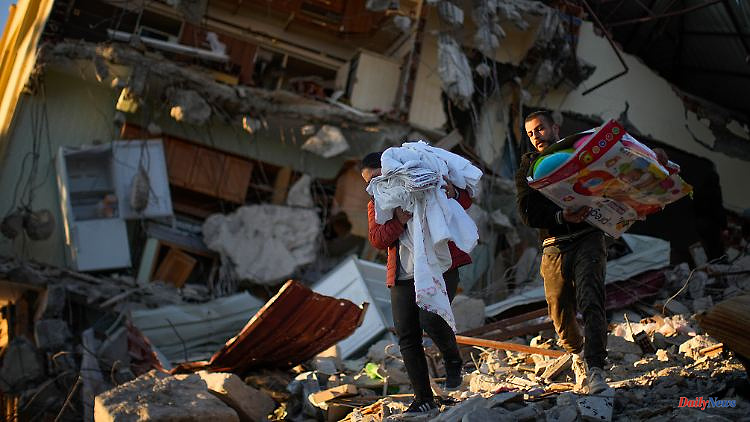Actually, Syria is currently dependent on any help after the earthquake, but there has been criticism of a delivery by the Lebanese Hezbollah. The Syrian opposition complains that this should primarily benefit the militia itself. President Assad and Hezbollah would take advantage of the suffering of the people.
The Syrian opposition sees this primarily as self-interest: Hezbollah, an ally of Syrian President Bashar al-Assad, is also sending aid to the earthquake region. The Lebanese Shiite militia says it wants to bring 29 trucks with blankets, heaters and powdered milk for babies to Aleppo on Saturday. The fighters of the Iran-backed organization from Lebanon played a key role in keeping the government there in power during the Syrian war.
For Hezbollah supporter Hussein Ahmed from Beirut, supporting the earthquake victims in Syria is a matter of course, he says. According to the 18-year-old, many Lebanese "who have fought alongside Syrian government troops in recent years have rushed to Syria to help with rescue operations." "They are our brothers in war and in natural disasters," says Um Aihum, a Syrian who lost her home in Latakia to the severe earthquakes. Latakia is under government control. According to its own statements, Hezbollah has sent about two dozen trucks with relief supplies to the Mediterranean city, which was badly hit by the earthquake.
The Syrian opposition, on the other hand, is critical of the help provided by the Shiite militia. Hezbollah and Syria's President Bashar al-Assad are trying to capitalize on the plight of the people, says Ahmed Ramadan, spokesman for the Istanbul-based opposition coalition Syrian National Coalition. He assumes that Hezbollah will use the moment to smuggle more fighters, weapons and drugs into the crisis-ridden neighboring country.
The Shiite militia already controls the borders and the legal and illegal flow of goods between the two countries. According to a study by the Washington-based New Lines Institute, leaders of Hezbollah have long been involved in the lucrative drug trade in Syria. According to experts, the billions in revenue from this will ensure Assad's survival to a considerable extent. The civil war country produces amphetamines on a large scale and smuggles the drugs abroad via Lebanon. Hezbollah is supposed to earn a lot of money from it.
Iran and Russia, which support Assad, are also currently delivering aid to the earthquake victims. The Syrian President has been charged with crimes against humanity, including the use of chemical weapons in Syria. Twelve days after the devastating earthquake in the Turkish-Syrian border area, the death toll has now risen to over 45,000. Around 6,000 of the victims are in Syria.












